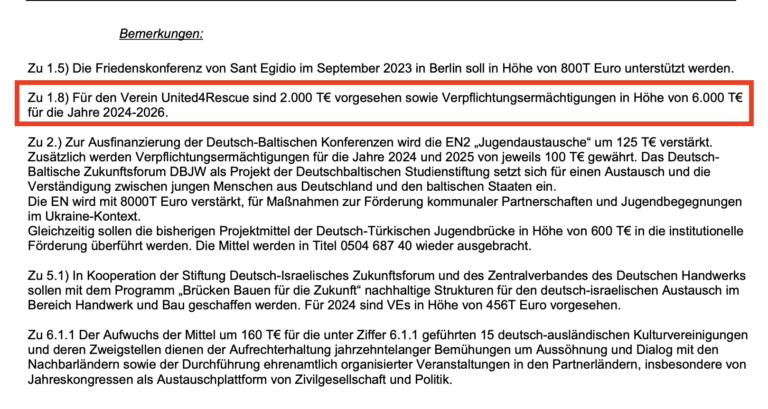
German government excels in showing off this year
While the financial crisis, along with the energy crisis, is ruining the livelihoods of many and thousands are losing their jobs each day, the federal government has put up a spectacular display of showing off this year.
War-related inflation, the energy crisis and a slowing economy have put many jobs at risk in Germany. With the price of essential goods skyrocketing, ordinary people find it rather difficult to pay the bills. Despite all this, the government coalition made up of the Social Democrats, the Greens and Liberals have showed no signs of restraint and embarked on an unprecedented spending spree this year. As part of the coalition pact, it was probably agreed, among other things, that every important person relies on at least 4 to 5 key people who have at least that many confidants. This is suggested by the fact that
the number of civil servants employed at federal ministries has risen by nearly 60 per cent compared to the previous Merkel governments, which obviously implies bigger expenses. In the federal budget for 2023, an additional 4,769 new jobs are planned at federal ministries and their related agencies.
It is true that some staff increases were also planned for the federal police and the border guards, but the number of these positions is dwarfed by the number of posts created for those belonging to the „trusted circle.” Plenty of positions have been set up that executed no specific tasks until now. One such job is that of Ferda Ataman at the helm of the anti-discrimination agency. Coming from an immigrant family, she is also referred to in the parliament as „the high priestess of German discrimination”. She made so many racist and exclusionary remarks in the past few years that before her appointment, she had to delete more than a thousand posts, comments and shared press interviews on her social media pages.
Juhu🎉🙌! 369 Stimmen hätte sie gebraucht, 376 sind’s geworden @FerdaAtaman ist neue Antidiskriminierungsbeauftragte des Bundes!
Von ganzem Herzen waggonweise Glück und Erfolg für Dich, liebste Ferda! Beste Frau fürs Amt, niemand sonst hat’s so verdient 🥰💐🚀 pic.twitter.com/PKMCt820Ot— Konstantina Vassiliou-Enz (@Konstantina__V) July 7, 2022
However, this is negligible compared to the amount of money that flows through various lobby organisations with links to one of the governing parties in the coalition, primarily to the Greens.
For example, it was recently leaked that an annual grant of two million euros was awarded to an organisation that participates in the rescue of migrants in distress on the Mediterranean Sea, and the head of this organisation is, incidentally, the partner of Katrin Goring-Eckardt, the Green Party vice president of the federal parliament.
The resources for this funding are covered directly from the budget of the Federal Ministry of Foreign Affairs, and are not included in the original draft budget. But indirectly, this money comes from taxpayers’ pockets.

The costs of governance also completely slipped out of the hands of the cabinet led by Olaf Scholz. According to the law, the Bundestag, should have „only” 589 seats, but instead 736 representatives sit in the building.
This led to a strange situation that the parliament of Germany, a country boasting a population of 83 million, keeps around two-hundred more lawmakers busy than the Congress in the United states, which has a population of 330 million people. So, after China, Germany has the second largest parliament.
It is certainly not entirely the fault of the current government, but nothing has been done about it. Instead, the Chancellery building will also be significantly expanded, the costs of which were initially around six hundred million euros, but now is already at 777 million euros, and who knows what the total amount will be when the works are completed. Once finishd, the chancellor’s office will be many times the size of the White House in the United States. The Federal Audit Office and the Taxpayers’ Association have already warned the government about the dangerously high costs.
Government members also have serious needs, at least this can be inferred from the fact that Robert Habeck, the economy minister delegated by the Greens, recently sought a private photographer for a salary of four hundred thousand euros. In the past, the Greens would have run a swift calculation on how many nursery school meals could be paid from that money, but those days are apparently over.
Tags:

